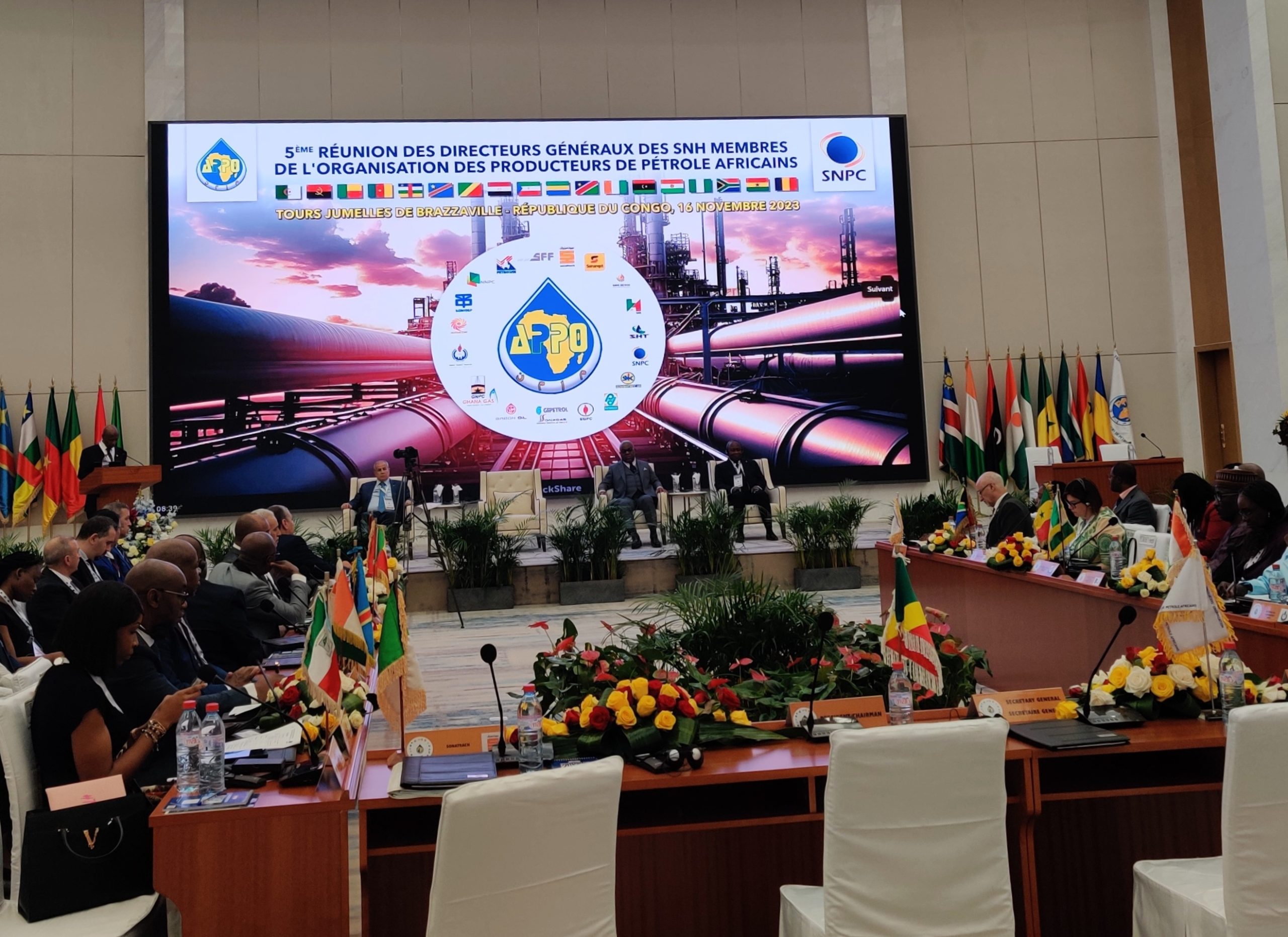Read more
The African Petroleum Producers Organisation (APPO) held the 5th Meeting of the CEOs of national oil companies (NOCs) today in Brazzaville. The presidence of the Meeting was handed over from Algeria’s Sonatrach to SNPC with a mandate of growing collaboration and partnerships between African state-owned energy companies. With the attendance of CEOs and representatives from the NOCs of Algeria, Angola, Benin, Gabon, Republic of Congo, D.R. Congo, Libya, Nigeria, Equatorial Guinea, Niger, and Côte d’Ivoire, the Meeting focused on addressing Africa’s main energy challenges. Access to capital and the need to develop sustainable operational practices featured high on the agenda. The Meeting notably welcomed an intervention of Dr. Sultan Al-Jaber, CEO of the Abu Dhabi National Oil Company (ADNOC) and President of COP 28. With the UN Climate Change Conference only two weeks away, African NOCs discussed a common position on climate change and Africa’s approach to the energy transition. They notably considered signing into the Global Decarbonization Accelerator (GDA), an initiative to be launched in COP 28 and for which nearly 20 NOCs/IOCs have joined already across the world. The day ended with a recommendation to consider signing the Global Charter on Decarbonisation and pushed African NOCs to ensure that Africa has a voice in the global discourse on energy transition, and agenda setting. The establishment of the African Energy Bank, a joint project of APPO and the Afreximbank, was also part of the agenda. Participants were briefed on all potential avenues to raise the $5bn required for the bank, including the need to raise capital from sovereign wealth funds and African institutional investors. More importantly, the Meeting urged NOCs to consider subscribing to the share capital of the bank to fast-track its establishment. Last but not least, several cooperation frameworks and agreements were sealed, especially when it comes to training and skills development. SONATRACH of Algeria entered into collaboration agreements on training with SNPC, GNPC (Ghana), SONAHYDROC (D.R. Congo), and SNG-Benin. On its side, SNPC and SONIDEP of Niger also entered into a cooperation agreement on the sharing of experience and expertise as well as capacity building. In order to grow cooperation between African NOCs, participants decided to establish the NOC Technical Experts Committee, while GEPetrol agreed to host the next NOCs Meeting in Malabo in September 2024.
The Nigeria Liquefied Natural Gas (NLNG) Train-7 project has reached 52% completion, as Africa’s leading oil producer pushes to boost its gas sector and increase its revenue from gas exports. The multi-billion dollar NLNG Train-7 project is an expansion under construction at the 22.5 mtpa NLNG Terminal in Bonny Island, Rivers State. The project aims to increase capacity by an additional 7.6 mpta of LNG by building a seventh train of 4.2 mtpa capacity and debottlenecking the existing trains. But despite the substantial progress made in constructing Train-7, concerns remain over the future feedstock. These were notably voiced during an engagement session between the Executive Secretary of the Nigerian Content Development and Monitoring Board (NCDMB), Engr. Simbi Kesiye Wabote and Dr. Philip Mshelbila, the Managing Director of NLNG, at the gas company’s operational base at Bonny Island. NLNG management expressed concerns over the delay in initiating deep-water gas projects that are intended to supply feed gas for Train-7 and future expansions. This delay means the facility could be completed without a gas source for liquefaction. Mshelbila said NLNG is already facing difficulties in getting adequate gas supply, resulting in its six plants –Trains 1 to 6 – producing below 50% of their total installed capacity. Data collected by Hawilti shows that the facility was already operating at only 65% last year. While feed gas to the NLNG plants comes mainly from some of its joint ventures (JV) partners, including Shell Petroleum Development Company (SPDC) Limited, Total Energies and Nigerian Agip Oil Company (NAOC), Mshelbila said supplies have suffered disruptions due to recurrent vandalism of pipelines, facility failures and low production from aging wells. According to Mshelbila, NLNG is exploring several options to mitigate the challenge, including partnering with critical security agencies to curtail vandalism on the pipelines and working with their JV partners to increase their gas production. To boost performance of Trains 1 to 6, Mshelbila said the Board of Directors at the NLNG has approved for the company to procure gas from other international and indigenous gas producers.

